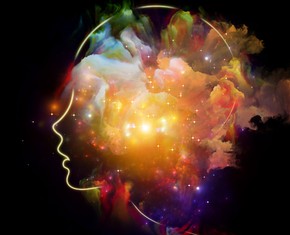The views expressed in our content reflect individual perspectives and do not represent the authoritative views of the Baha'i Faith.
We know nothing at all. All our knowledge is but the knowledge of schoolchildren. The real nature of things we shall never know, never. – Albert Einstein
Just as you do not know the path of the wind or how bones are formed in the womb of a pregnant woman, so you do not know the activity of God who makes all things. – Ecclesiastes 11:5.
That which we imagine, is not the Reality of God; He, the Unknowable, the Unthinkable, is far beyond the highest conception of man. – Abdu’l-Baha, Paris Talks, p. 26.
An atheist blog recently took on the “unknowability of God” question, and concluded:
…what exactly is the difference between an “inherently unknowable” thing, and something that does not exist at all? Practically there is none. Now, that isn’t proof that something unknowable couldn’t ever exist. But as we could not study it, evaluate it, observe it, or say anything about it whatsoever, then for all intents and purposes, it’s as good as nonexistent anyway. – Martin Wagner, the Atheist Experience
Students of logic might label this a “false equivalency” argument: “If we can’t know something, that means it doesn’t really exist.” Personally, I look at this argument as one with an enormous amount of facile hubris, which elevates finite human beings to ultimate knowers, and posits that we can penetrate every possible mystery in this vast and complex universe.

Albert Einstein
Einstein’s well-informed and yet humble claim rings much more true for me—that we can never know the real nature of things. Yes, we can dissect and examine and scientifically evaluate and break something down to its component parts at the molecular level—but that, as Einstein said, is “the knowledge of schoolchildren.” To go beyond such rudimentary understanding, to really know the essence of anything, remains far beyond our grasp.
It may be hard to admit in the era of science, but we humans have finite mental capacities and abilities. When we try to comprehend the infinite, we fall far short. Don’t believe it? Go outside tonight and look up. When you gaze into the infinite cosmos and try to comprehend it, if you’re honest with yourself, you have to frankly face your lack of knowledge and understanding. Everyone does.
If you ponder it long enough, that realization will lead you, logically and inevitably, to this one: if we can’t comprehend the creation, how can we comprehend the Creator?
The Baha’i teachings say that God is an “unknowable essence,” “far beyond the comprehension of all creatures.” That leaves us with a conundrum: how can we worship God when we can’t know God? The closest we can get, Abdu’l-Baha said, is by striving to know ourselves:
The object of God’s teaching to man is that man may know himself in order to comprehend the greatness of God. – Abdu’l-Baha, Abdu’l-Baha in London, p. 80.
Consider the paradox this way: we know everything we know solely by its attributes. When daylight comes, we know the sun shines down its light and heat on us. We recognize the sun by that light and heat—by the sun’s attributes, not its essence.
Think about your best friend—you know that person well, but you don’t and can’t know your friend’s innermost essence. You can only know your friend through his or her attributes—through character and through actions, through love and loyalty. In the same way, the Baha’i teachings say, we can try to understand God through the divine attributes:
Knowing God, therefore, means the comprehension and knowledge of His attributes and not of His Reality. And even this knowledge of His attributes extends only so far as human power and capacity permit, and remains wholly inadequate… The power of human understanding does not encompass the reality of the divine Essence: All that man can hope to achieve is to comprehend the attributes of the Divinity; the light of which is manifest and resplendent in the world and within the souls of men. – Abdu’l-Baha, Some Answered Questions, newly revised edition, pp. 254-255.
Those Godly attributes—love, mercy, kindness, intelligence, compassion, justice, etc., etc.—can give us a very elementary sense of the nature of the Creator. From a Baha’i perspective, we can best grasp and understand those attributes as they manifest themselves in the lives, the actions and the teachings of the prophets of God:
The knowledge of the reality of the Divinity is in no wise possible, but the knowledge of the Manifestations of God is the knowledge of God, for the bounties, splendours, and attributes of God are manifest in Them. – Ibid., p. 256.
This, for Baha’is, defines true worship—to understand that the prophet of God represents the rays of the Sun of Truth, the epitome of Godliness, the emanation of the attributes of the divine:
If we turn to God we must direct our hearts to a certain centre. If man worships God otherwise than through his Manifestation he must first form a conception of God and that conception is created by his own mind. As the finite cannot comprehend the Infinite so God is not to be comprehended in this fashion. That which man conceives with his own mind he comprehends. That which he can comprehend is not God. That conception of God which a man has is but a phantasm, an image, an imagination, an illusion. There is no connection between such a conception and the Supreme Being.
If a man wishes to know God he must find him in the perfect mirror; Christ or Baha’u’llah. In either of these mirrors he will see reflected the Sun of Divinity.
As we know the physical sun by its splendour, by its light and heat so we know God, by the spiritual sun, when he shines forth from the temple of Manifestation by his attributes of perfection, by the beauty of his qualities and by the splendour of his light. The Manifestations of God are the focal centres of the world. …
The epitome of all worship is the worship of the attributes of Christ, not his personality. – Abdu’l-Baha, Star of the West, Volume 5, p. 48.
You May Also Like
Comments

















Likewise no matter, how hard we may try or how knowledgeable we may be there are something we cannot comprehend,
Bahai love.
Paul